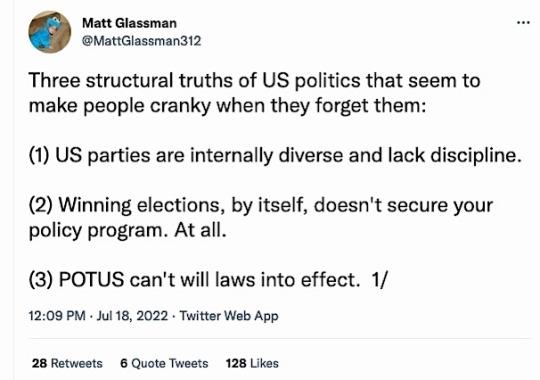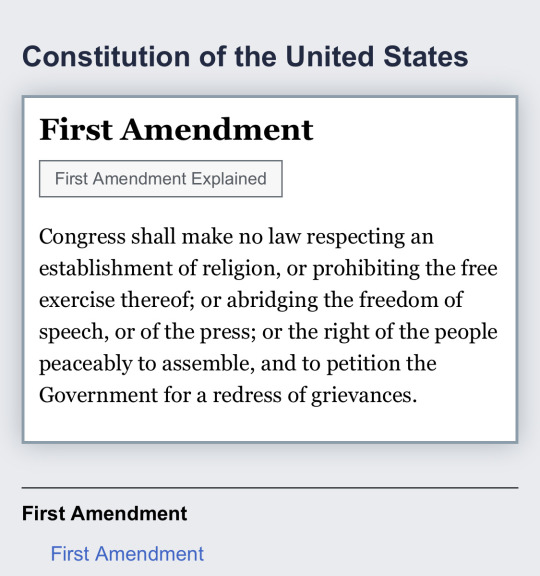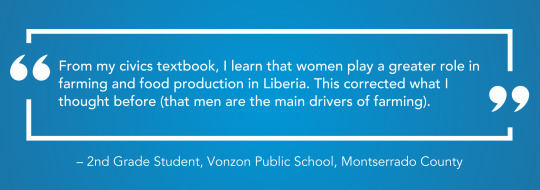#civic education
Photo

#giphy#ed#archivesgif#national archives#we the people#bill of rights#civic education#fdr library#us constituion#werule civics
4 notes
·
View notes
Text

#civic si#civic alliance#civic elections#civic education#car#engine#civic body#motors#vehicle#tiktok#fyp2022
2 notes
·
View notes
Photo

Matt Glassman on Twitter.
A lot of people don’t understand basic politics in the US.
What most Americans learn in school about government is based on simplistic diagrams of how bills become law. They are also required to memorize Wikipedia Lite stuff such as how many electoral votes it takes to get elected president or how many US senators there are. So after they graduate they then become baffled by the more complicated reality of governance or get taken in by political hucksters with an agenda.
Disillusionment and apathy can quickly set in when the abbreviated and oversimplified civics education given to most Americans fails to account for the complexity and multiple layers of government.
If schools can’t teach 7th through 12th graders how things really work in government then there needs to be more outreach by civic foundations, higher education institutions, and reality-based media. People in the creative community should be enlisted to help get the word out.
4 notes
·
View notes
Text
when you call your reps to ask them to pretty please stop taking away your rights, remember:
In deep red areas you're a republican who is thinking of voting for someone else if they don't vote what you want on this specific bill because it impacts your republican ideals so very much
In swing states you're an undecided voter who's gonna go blue if they don't vote how you like
remember to call because that way their phone is going off and their peers can hear it because their offices are close together (emails and letters don't work like that), so it can rattle them if they get high volumes. remember that you gotta make them feel like they're losing something.
#civic engagement#democracy#anti facist#abortion#education#lgbtq#call your reps#florida#tennessee#united states#go through comments and tags#lots of useful information in there
68K notes
·
View notes
Text
Engaging the Next Generation: The Upcoming Presidential Election and Youth Involvement
As the upcoming presidential election approaches, it’s more important than ever to encourage the next generation to get involved and understand the significance of their voices in shaping the future. At Moms and Tots Magazine, we believe that fostering an early interest in civic engagement among children and teens can lead to a lifetime of informed voting and active participation in our…

View On WordPress
#active participation in politics#civic education#education#election year#kids#Parenting#rock the vote#technology#votesmart.org
0 notes
Text
The Tyranny of Merit: What's Become of the Common Good 3- Rethinking social contribution and repairing the sorting machine education system.
Michael Sandel observed that in market societies where money is the measure of most things, the ease of judgemens of value is how much money a person can earn or the person's monetary earning capacity. And hence a person's contribution to society is SOLELY judged by wealth.
This kind of assumption is flawed because it ignores that a person's contribution to society can be something other than the market value.
Sandel cites two examples:
1. A teacher may not earn as much as a drug dealer but a teacher surely contributes more to the society than the money made by a drug dealer.
2. The billionare casino mongul Sheldon Adelson being one of the richest men in the world makes thousands of times more than a nurse or a doctor but in terms of contribution to the society, caring for people's health is morally more important than gambling.
In a twisted society when money and material posessions are seen as as the 'only success' standards, many people take illegal or unethical routes to get rich in order to satisfy all their materialistic desires.
Unfortunately, many elite universities adopt a harsh sorting machine approach to reinforce the elite families' children having much higher chances to be admitted (and therefore subsequent high paid jobs) while those who come from less advantaged families are increasingly getting harder to be enrolled.
In this sense, university education reinforces Darwinism and winning eat out all.
The severe competition creates many wounded 'winners' among young people in terms of mental, emotional, psychologial and physical beings. Whether they are eventually selected or not, whether they struggle to stay in the highly competitive universities environment, the amount of pressures they face is tremendous. Their supposedly playful childhood when they can safely explore to grow up is substituted by over parenting interventions because parents want to secure higher chances to get into the elite schools and universities. The young people become more fragile to failures and with higher sucidal risks if they think 'failures' (of not being admitted to elite schools and universities) is 'end of the world'.
Such type of pyramid sorting machine education system fails to prepare students to be morally reflective human beings and effective democratic citizens, capable of deliberating about the common good.
It is because many elite colleges and universities place relatively little curricular emphasis on moral and civic education, or on the kind of historical studies that prepare students to exercise informed practical judgement about public affairs.
Leading colleges and universities today are better at inculcating technocratic skills and orientations than the ability to reason and deliberate about fundamental moral and civic quesitions.
The growing prominance of supposedly value neutral social science, together with the proliferation of narrow, highly specialized courses, has left little room for courses that expose students to BIG QUESTIONS of moral and political philosophy and invite them to reflect CRITICALLY on their moral and political convictions.
This technocratic emphasis may have contributed to the failure of governing elites over the past two generations, and to the morally impoverished terms of public discourse.
Sandel recommended ways to repair the broken education system by by lowering the stakes of winning admission to highly selective colleges and universities.
It is also necessary to honour work by recognizing other forms of learning and training that prepare people to undertake it. In this context, governments should reinvest fundings in public higher education, and technical and vocational education and their roles in training people for a broad range of works. Governments should move away from prejudical funding allocations to prestige colleges over other post-secondary educations.
In my view, if a person's contribution to society should NOT be judged soley by the market values, governments should recognise contributions to a society BEYOND just the person's market value earnings or earning capabilities. e.g. mothers and housewives who sacrifice whole or part of their career lives to bear and take care of children and families should be valued. Their social contributions should be well included in social welfare and other policies where markets can't reward them. Fundamentally, their legal rights should be protected from possible abuses and discrimination because they don't have earnings or they sacrifice substantial earnings for taking up caring responsibilities.
#inequality#education#social inclusion#civic education#citizenry empowerment#social policy#welfare policy#discrimination
0 notes
Text
Rethinking Education: Why are we graduating from K-12 school so clueless.
In my journey through K-12 education in Southern California, I often found myself reflecting on the critical gaps in my learning experience. Looking back, I can’t help but wonder about the many valuable life lessons and practical knowledge that were conspicuously absent from my curriculum. These are the things I wish I had been taught in K-12.
First and foremost, I believe that a well-rounded…

View On WordPress
#Citizenship#Civic Education#Curriculum#Education#Environmental Awareness#Financial Literacy#Health Education#K-12#Life Skills#Practical Knowledge
0 notes
Text
Freedom of choice is an important value. But without common foundations, it can lead to people shouting one another down. An educational model that leaves no room for a core curriculum shaped by the demands of 21st-century democracies leaves students woefully ill equipped for dealing with disagreements. In a world where individual choice is supreme, how do we learn to accept that there are alternative perspectives to our own that may also be valid? If my goals are the only ones that matter, those who do not share them can too easily be viewed as obstacles that need to be swept away. In the educational context, the invisible hand can turn into an iron fist.
By Abandoning Civics, Colleges Helped Create the Culture Wars
Sept. 3, 2023
#higher education#higher learning#college students#universities#civic education#seminar#discourse#active listening
0 notes
Text

0 notes
Text
What efforts are needed to address and counter hate speech more effectively?
A comprehensive response with a whole-of-society approach is essential, with the following vital areas of action to consider:
Establishing the need to combat hate speech as a matter of national and global priority at the highest political levels,
Addressing hate speech in the content of education programmes/curricula and pedagogical approaches at every level of formal, non-formal and informal education, from early childhood through higher education to lifelong learning,
Putting in place effective anti-discrimination policies and strategies,
Developing better reporting mechanisms at the local, national and global levels,
Coordinating improved responses with social media companies,
Encouraging further research on the nature and spread of hate speech and the effectiveness of the responses and mitigation measures implemented by various stakeholders, including in the education sector.
#Social and emotional learning (SEL)#practical tools and techniques#points of view#negative emotions#resolve conflicts#manage stress#hate speech#UNESCO#civic education
0 notes
Text
The Dangers of Bad Governance: Examining Characteristics of Transparency, Abuse of Power, and Negative Impact on Society and Economy
This article delves into the characteristics of bad governance, highlighting the detrimental effects they have on society and the economy. Lack of transparency and accountability, abuse of power and corruption are explored in detail, shedding light on their impact on governance. By understanding these negative traits, we can work towards creating a more transparent and accountable system that…
View On WordPress
0 notes
Text
Civic Textbooks in the Hands of Liberia’s Primary Schools Children – Another USAID/ Liberia First

By: Democracy International’s Elections and Democracy Activity Team
New civic education textbooks are helping children in Liberia learn about Liberian democracy and civic participation. Democracy International's Elections and Democracy Activity, funded by the United States Agency for International Development (USAID), partnered with the Ministry of Education and Youth Movement for Collective Action (UMOVEMENT) to deliver civic education textbooks to primary school students throughout Liberia. Ten percent of Liberia's primary school students in grades one through six will get a civics textbook over the five-year program. For most of these students, this is their only textbook.

Following the Ministry of Education’s decision to formally reintroduce civic education in schools - after a 30-year break marked by civil wars and the country's rebuilding of civic life - the Elections and Democracy Activity worked with the Ministry of Education to print and deliver more than 60,000 civic education textbooks. With teacher training in targeted schools and UMOVEMENT support, early signs show children and teachers are learning, engaging, and applying civics lessons. Early indications also show that enrollment has increased given the excitement surrounding the books. "Teaching civics lessons to our children will result in restoring our respect and value as community leaders. Therefore, let all community stakeholders be involved," Saye Siaphayini, Whipa Public School Parents-Teachers Association (PTA) Chairman said during a meeting with the school administrators, teachers, and teaching learning officers.

UMOVEMENT and the Ministry of Education are working together to train Master Trainers at teacher training institutes and universities to effectively deliver and teach the material to students. During a recent training, facilitators discussed how teachers can ensure students are building critical thinking skills and actively learning the material; how elections tie to civics education; and how to build positive citizens, respect for the rule of law, and a sense of belonging.
USAID is conducting an impact evaluation of this Elections and Democracy Activity component throughout the 2023-24 school year to learn from the overall effect of the textbooks, engagement with PTAs, and teacher training. Impact evaluators are currently sampling 100 schools for selection for next year’s program pilot. The lessons of this first year to protect the books and support teachers and their training to deliver the materials effectively will be invaluable to the impact evaluation process. One of only a few evaluations of civics in schools in Africa as well as one of the only ones conducted on civics teaching at the primary level, this project and its findings will contribute to the global body of best practices.
In 2022, the Elections and Democracy Activity put textbooks into the hands of children in fifteen schools in rural and urban Gbarpolu, Montserrado, and Nimba counties. In the next two years, the project will add Grand Bassa County, Lofa, Margibi, and Bong. At its close, when the project is handed over to Liberia's Ministry of Education for scale-up to all public primary schools in 2025, one in every ten children in grades one through six will have a USAID-funded civic education textbook in their hands.
0 notes
Text
#news#history#politics#us politics#social justice#public education#democracy#civic education#humanities#american history#world history#participation#vote
0 notes
Text
Civic Education Handbook Published By Office Of Political Ombudsman
Civic Education Handbook Published By Office Of Political Ombudsman
To check Jamaica’s 60th year of Independence and the twentieth year of presence of the Office of the Political Ombudsman (OPO), the OPO has distributed a Civic Education handbook, named ‘Jamaica Strong and Free’. Political Ombudsman, Donna Parchment Brown, said the book catches both the desire and motivation for more community information, more grounded metro testimonies and a reestablished…

View On WordPress
0 notes
Text
A brief summary of how Education fails Boys
I saw people sincerely questioning and minimizing the current struggles boys face in education.
So, I wanted to collect some relevant information, with sources. All of these are from the past couple of years, from 2021 onward.
Girls have more difficulty accessing education and are more likely than boys to be out of school at primary level. However, boys are at greater risk of repeating grades, failing to progress and complete their education, and not learning while in school. Globally, 128 million boys are out of school. That’s more than half of the global out-of-school youth population and more than the 122 million girls who are also out of school.
The Leave no child behind: Global report on boys’ disengagement from education shows that boys are increasingly left behind in education. They are at greater risk of repeating grades, failing to progress and complete their education, and not learning while in school. While previously boys’ disengagement and dropout were concerns mainly in high-income countries, several low- and middle-income countries have seen a reversal in gender gaps, with boys now lagging behind girls in enrolment, completion and learning outcomes. Boys are more likely than girls to repeat primary grades in 130 countries, and more likely to not have an upper secondary education in 73 countries. At tertiary level, globally only 88 men are enrolled for every 100 women.
In 1970, women only made up 42 percent of the college population. Today, the roles have essentially reversed. The U.S. Department of Education estimates men to make up 43 percent of enrolled individuals in college. And this crisis impacts minority populations even more: only 36 percent of Black and 40 percent of Hispanic bachelor degree recipients are male.
This is not an issue of colleges neglecting to admit men at an equal rate. Rather, colleges are receiving fewer applications from men than women. In 2010, only 44 percent of college applications were from men and that number has been steadily declining since. The decrease in male applicants is a sign that men are discouraged from pursuing higher education at a disproportionately high rate.
These statistics point to a larger, systemic problem. The American education system perpetuates a series of gender norms that cause significant harm to children; boys are impacted by these expectations in a way that tends to be overlooked. The stereotype that boys have a higher propensity to misbehave has led to the over-punishment of boys in the classroom.
Boys are facing key challenges in school. Inside the effort to support their success
An APA task force is spotlighting the specific issues and recommending evidence-based ways to enact swift change
At school, by almost every metric, boys of all ages are doing worse than girls. They are disciplined and diagnosed with learning disabilities at higher rates, their grades and test scores are lower, and they’re less likely to graduate from high school (Owens, J., Sociology of Education, Vol. 89, No. 3, 2016; Voyer, D., & Voyer, S. D., Psychological Bulletin, Vol. 140, No. 4, 2014; “The unreported gender gap in high school graduation rates,” Brookings, 2021). These disparities persist at the university level, where female enrollment now outpaces male enrollment by 16% (Undergraduate Enrollment, National Center for Education Statistics, 2022).
“The gap between boys and girls is apparent from very early on,” said developmental psychologist Ioakim Boutakidis, PhD, a professor of child and adolescent studies at California State University, Fullerton. “The disparities not only exist across the board—from kindergarten all the way to college—but they are growing over time.”
For boys of color, that gap is even larger. They face suspension and expulsion from school at almost five times the rate of their White male classmates and are even less likely to finish high school or college (“Exploring Boys’ (Mis)Behavior,” Society for the Psychological Study of Men and Masculinities, 2022 [PDF, 261KB]).
The implications of these disparities are huge. Doing poorly at school is strongly associated with major challenges later in life, including addiction, mental and physical health problems, and involvement with the criminal justice system—problems that also have ripple effects on society at large. In the United States, getting at least a college degree may be the one remaining, relatively stable ticket to a decent life, Boutakidis said.
In a recent New York Times essay, “It’s Become Increasingly Hard for Them to Feel Good About Themselves,” Thomas Edsall reviews a variety of research studies highlighting the plight of young men in the United States. As a front-line educator who has worked in boys’ schools for 30 years and served as the head of a boys’ school for the past 20 years, I’ve been an unhappy witness to this dilemma.
Data supports the claim that boys are falling behind, and dramatically so. For example, there is a growing gender gap in high school graduation rates. According to the Brooking Institution, in 2018, about 88% of girls graduated on time, compared with 82% of boys.
For college enrollment, the gender gap is even more striking, with men now trailing women in higher education at record levels. Last year, women made up 60% of college students while men accounted for only 40%, according to statistics from the National Student Clearinghouse. College enrollment in the United States has declined by 1.5 million students over the past five years, with men accounting for 71% of that drop.
45 notes
·
View notes
Text
call me crazy but i don't think you need to be a martyr to be educated
#been seeing some atrocious takes lately and i just want to say that there's a huge difference between educating yourself and doomscrolling#ppl saying that 'deciding not to watch videos of [x horrible atrocity] is a form of privilege'#because you're privileged not to be in that situation and can live your life normally. but there is a HUGE difference#between learning about an issue versus subjecting yourself to traumatic footage just because you have a 'civic duty.' and let me say.#you have a duty to be aware and educated. but you also have a duty to take care of yourself. your mental health and wellbeing.#your screentime. et cetera.#fucking crazy how people think that refusing to watch others suffer is some form of excessive ignorance or privilege. like. what.#willful ignorance is bad yes but you can educate yourself without sabotaging your own mental state.#and shockingly? that doesn't make you a bad person.
12 notes
·
View notes